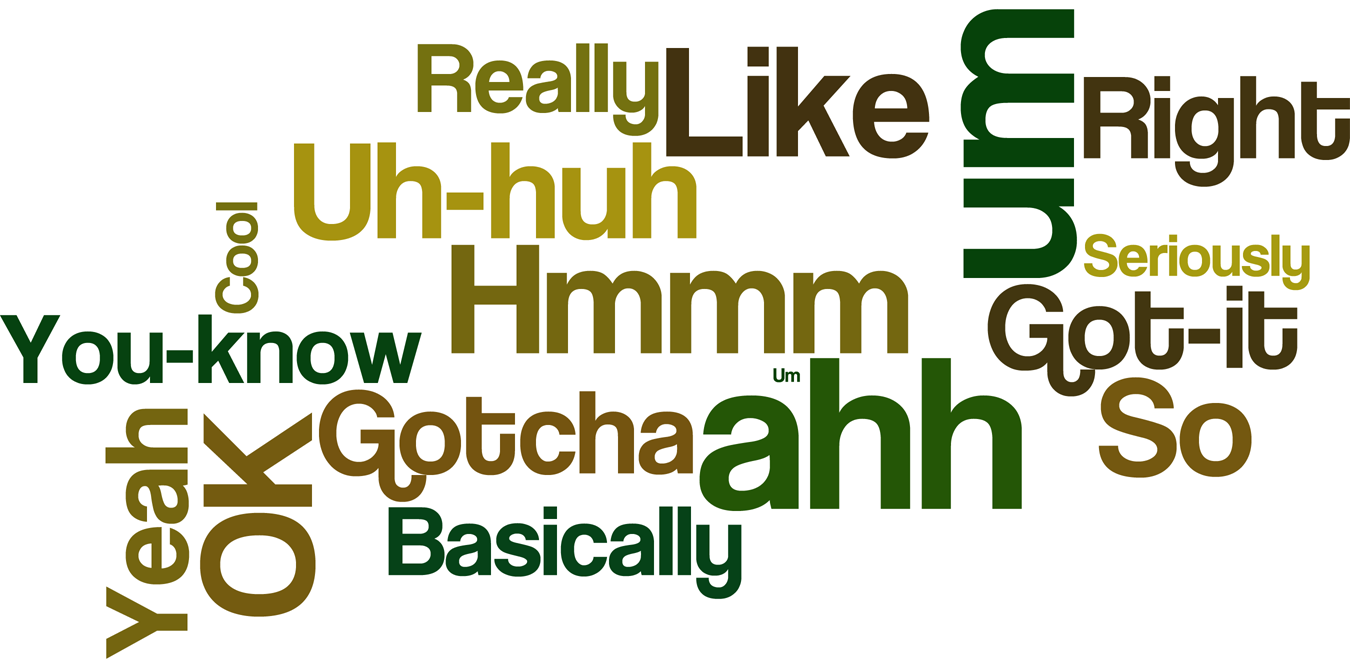

– Íse erotevméni aftín tin período? – Kíta… to móno pu boró na po íne óti íme kalá. – “Look… We need to talk about what happened last night.” – Κíta… prépi na milísume ya aftó pu éyine hthes. It’s also used when one wants to avoid answering a question directly. This filler word expresses hesitation and it’s often used when the speaker is about to say something that makes them feel uncomfortable, especially when they’re being honest about something that might hurt the other person.
#Filler words movie#
– “Did you like the movie we saw yesterday?”- “Um… I wasn’t impressed.” – Su árese i tenía pu ídame hthes? – Ókei…den endiposiástika. Similarly to “Εντάξει…,” this Greek filler is used to express uncertainty or mediocrity, and it’s placed at the beginning of a sentence. – “Did you like this book?”- “Um…it was okay.”

– Su árese aftó to vivlío? – Endáxi… kaló ítan. This Greek filler word is used to express uncertainty or mediocrity, and it’s placed at the beginning of a sentence. – “Well? What do you have to say about this?”

– “So… Where will we go today after all?”

When it appears at the end, it’s used to motivate the other person to respond or to take part in an activity or action.Įxample 1: At the beginning of the sentence When it appears at the beginning, it aims to give the speaker some time to think. This filler can be placed either at the beginning of a sentence or at the end. – “Why didn’t you tell me that you (plural) will go to the cinema?” However, be careful about using it as it can indicate hesitation, indecision, or even guilt.
#Filler words how to#
It’s usually placed at the beginning of a sentence, and it’s used to gain a few valuable seconds to think about how to say something or what to decide. This is probably the most common Greek filler word. The Top 10 Greek Filler Words #1 Εεε… Greek Show hesitation, confusion, confidence, or determinationĢ.Hide your anxiety when speaking in public or when you’re not that comfortable with the language (perfect for beginners).Give you the time to think about how you want to say something, especially when you’re under pressure or talking about sensitive matters.Provide a few valuable seconds to think about what you’re going to say next.Well, one thing is for sure: Filler words usually don’t add any meaning to the sentence. Using the appropriate fillers can buy you time and even help you feel more confident in these situations.Īs a Greek learner, it’s essential that you become familiar with the common Greek filler words so that you can better participate in conversations! Table of Contents This can be especially helpful in the context of speaking a foreign language, because we’ve all been there: Entering a conversation with a native speaker only to feel overwhelmed midway through. These are called filler words and they’re quite useful as they allow us to take a moment to think about what to say next. In everyday conversations, we often use short (and sometimes meaningless) words or sounds to fill small pauses in our speech. What to say when you don’t know what to say


 0 kommentar(er)
0 kommentar(er)
